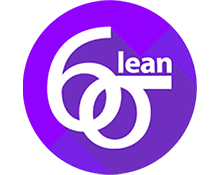Table of Contents
Many international businesses adopted the model of Six Sigma in the 1990s. This increased the efficiency of their work processes. By using specific tools and techniques of Six Sigma, organizations can eliminate shortcomings in how they operate and thus attain better output. So, what is Six Sigma certification? Why is it essential? How can one obtain it? This write-up intends to answer the important questions pertaining to Six Sigma.
Upcoming Batches ofLean Six Sigma Black Belt Course:-
| Batch | Mode | Price | To Enrol |
|---|---|---|---|
| Starts Every Week | Live Virtual Classroom | 29500 | ENROLL NOW |
What is Six Sigma Certification?
Certification in Six Sigma is aimed towards quality control. This is done by teaching professionals to examine workplace practices and their results. Thereupon, they must learn to improve these processes in order to minimize waste and decrease flaws. As a result, they can improve the way their organization operates resulting in increased profitability. Thus, a Certification Course in Six Sigma can assist employees in having a successful career.
Upcoming Batches of Six Sigma Green Belt Certificate :-
| Batch | Mode | Price | To Enrol |
|---|---|---|---|
| Starts Every Week | Live Virtual Classroom | 19500 | ENROLL NOW |
A Six Sigma certification comprises various levels – White, Yellow, Green, Black, and Master Black belt. These are meant for beginner to expert users with White Belt being an entry-level certification.
The figure below gives a brief idea of the Six Sigma belts – their roles and responsibilities –
Let us look at Six Sigma Yellow and Black belt certification in detail.

Six Sigma Certification – Yellow Belt
This certification is beneficial for professionals who deal specifically with team-related issues.
A certified Yellow Belt individual has a basic knowledge of Six Sigma. He/she is involved only in the process development of Six Sigma projects, and may not lead one themselves. Yet, they may be crucial team members responsible for improving smaller projects using the PDCA (Plan, Do, Check, Act) technique. Subsequently, they can determine processes that could be used effectively upon improvement.
Out of 200 points, a candidate must score 140+ to get this certification.
Six Sigma Certification – Black Belt
This level expects the certified individual to have an in-depth understanding of the entire Six Sigma Body of Knowledge.
This certification ascertains that he/she possesses detailed information about Six Sigma’s principles, tools, and techniques. Also, they can skilfully identify “non-value-added” actions. Moreover, he/she is adept at implementing the DMAIC model following the Six Sigma principles. Additionally, these professionals can efficiently manage a team and assign duties to team members.
To earn this certification, a minimum of 420 points out of 600 must be achieved.
Also Read- Top 20 Six Sigma Master Black Belt Certification Online in 2024
What is Lean Six Sigma?

Lean Six Sigma is a mixture of ‘Six Sigma’ and ‘Lean’ tactics.
The most important goal of Lean is to eliminate actions that add no value to a manufacturing procedure. On the other hand, Six Sigma aims to eliminate defects. While Six Sigma improves operational processes by reducing deficiencies, Lean strives to restructure work processes – from production to transactions – by reducing waste.
Lean Six Sigma has brought together the best of both approaches and has given an effective method for process improvement. It merges Six Sigma’s fundamentals of quality and consistency with Lean’s principle of efficiency. Consequently, it assists businesses in providing customer value through competent and enhanced procedures. As a result, products and services are of higher quality. Therefore, Lean Six Sigma is a popular management method adopted by businesses globally.
Lean Six Sigma Yellow Belt Certification
Lean Six Sigma Yellow Belt and Six Sigma Yellow Belt are the same. This is the introductory level of certification that one must obtain. It equips the learners with the knowledge to effectively reduce waste along with problem-solving techniques that can enhance operational practices.
Also Read- What is Benchmarking: Unlocking the Six Sigma Phase in 2024
Reasons to Get Certified
A Six Sigma certification has many benefits for experts operating in industries that include healthcare, manufacturing, or finance. A few of these advantages are as follows
- Improved way of working – The tools and techniques of Six Sigma allow a professional to decrease errors and reduce waste in products and processes. Thus, the output is of better quality leading to increased customer satisfaction.
- Become more employable – Most organizations worldwide use the Six Sigma approach to boost their profits as it enhances production processes. Therefore, they are constantly on the lookout for those who are certified in Six Sigma.
- Earn higher salary – The more experience one has along with higher Six Sigma certification, the higher their pay scale. Since Six Sigma has proven to be an effective way of running workplace operations, companies are willing to pay well to experts in this domain.
- Team Lead opportunities – Six Sigma projects entail working in teams and leading them too. Those with leadership qualities get the chance to showcase their skills and perform to the best of their ability. Thus, job satisfaction is an essential component that professionals can enjoy.
- Help in cost-cutting – Since Six Sigma works towards waste reduction, professionals can assist their organizations in reducing costs.
Best Six Sigma Course– Henry Harvin

It is essential to acquire the knowledge and skills required to obtain a Six Sigma certification. For this, joining a renowned institute like Henry Harvin Education is highly recommended.
According to Business Standard, Henry Harvin’s Six Sigma Certification Course ranks amongst the Top 5 in this category. Being one of the largest internationally-known Higher Edtech organizations, Henry Harvin facilitates learners to upgrade their skill set by offering more than 1200 courses in numerous categories. In addition to having more than 900 corporate customers, it has tie-ups with 200+ colleges worldwide.
Henry Harvin provides training in Lean Six Sigma for various Belts ranging from White to Master Black Belt. Furthermore, it offers options for training levels such as Basic, Diploma, and Post-graduate. Thus, it aims to meet the needs of all kinds of learners.
Course Details
Here are the highlights of Henry Harvin Education’s Lean Six Sigma Certification Course –
- To begin with, Henry Harvin awards two certifications – from Henry Harvin and National Skill Development Corporation.
- Furthermore, it provides quality training as its faculty members are Industry Experts with more than a decade’s experience.
- In addition to live interactive classes, the course lays emphasis on Projects and Practical work so that the trainees can get first-hand experience of the professional world.
- Also, students can have access to an e-learning portal that contains a variety of engaging learning material.
- Additionally, access to Masterclass sessions as well as Soft Skills courses ensures that the trainees can get the most out of this course.
- Moreover, the learners get assistance for Internships as well as Placements upon completion of the training.
Conclusion
Having understood what Six Sigma certification is, one can easily comprehend the fact that this certification enhances a professional’s ability to improve his/her organization’s production and quality environment. Additionally, it inculcates in them the essential skills of leadership and team management. Since the global market is in constant need of Quality Management personnel, Lean Six Sigma certification is the way to go!
Recommended Reads
- What is the Six Sigma Course & The Benefits?
- 7 Basic QC Tools For Six Sigma Projects in 2024
- Top 15+ Six Sigma Black Belt Certification in India in 2024 [Updated]
- Lean Six Sigma For Everyone: A 2024 Guideline
- Top 30 Six Sigma Interview Questions and Answers in 2024
FAQs
Q1) Which type of job can I get after Six Sigma certification?
Ans.) The career scope for a Six Sigma-certified professional is immense. One can work at positions such as – Quality Manager, Operations Manager – Quality, Production Analyst, Quality Tester, Product Quality Analyst, and more.
Q2) For how long is Six Sigma certification valid?
Ans.) These certifications have no expiration date.
Q3) Should I have work experience to get this certification?
Ans.) No, this is not necessary for a Yellow Belt Certification. However, for Green and Black Belt Certifications, three years of work experience is recommended. Alternatively, one should have completed two Six Sigma projects to become Black Belt certified.
Q4) Who awards Six Sigma certification?
Ans.) The IASSC and the ASQ are two of many organizations that give Six Sigma certifications.
Q5) Will I be able to use specific tools as a Six Sigma-certified person?
Ans.) Important Six Sigma-Specific tools/skills are –
- Hypothesis testing skills
- 5S Methodology – Sort, Set in Order, Shine, Standardize & Sustain
- Improvement Tools – OEE, Jidoka, Andon, Poka-Yoke, etc.
- PDCA technique
- Skills for 7 QC Tools
- Design Thinking Tools – Empathize, Define, Ideate, Prototype, and Test
Recommended Programs
Lean Six Sigma Green Belt
Certification Training
Ranked No.1 Six Sigma Certification in India | Aligned to IASSC Book of Knowledge | Combining Lean and DMAIC Methodology to Impart Key Skills | Gain Experience of 12+ Projects | Both Classroom and Live Online Options Available
Lean Six Sigma Black Belt
Certification Training
Ranked No.1 Six Sigma Black Belt Certification in India | 9361+ Participants Trained | Aligned to IASSC Book of Knowledge (BOK) | Gain Advanced Expertise Over Lean and Six Sigma Methodology| Gain Experience of 12+ Projects | Both Classroom and Live Online Options Available
Lean Six Sigma Master
Black Belt Certification
Step-in to a new designation of being Explicit Quality Professional | Get acknowledged as a Lean Six Sigma Evangelist | Connect to the rarest community of worldwide Black Belt specialists | Validate your professional skills in leading intricate projects | Execute Lean methodologies with perfection.
Explore Popular Category


